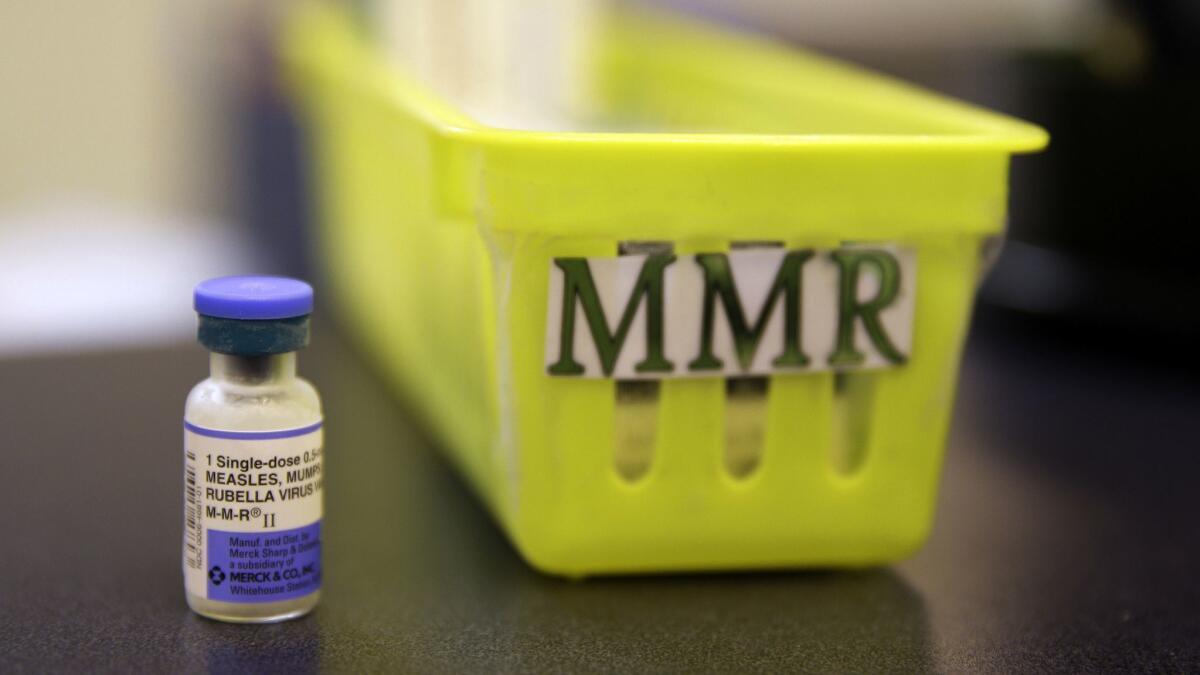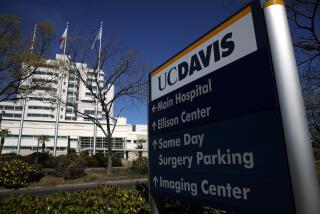Editorial: California still has a vaccination loophole. Close it

After a measles outbreak at Disneyland in 2014, the California Legislature eliminated the religious and âpersonal beliefâ exemptions that allowed parents to easily opt their kids out of the standard course of immunizations required to attend public school. It was a wake-up call, highlighting for those who hadnât been paying attention how the anti-vaccination movement had been slowly eroding confidence in childhood immunizations by scaring parents with discredited science and dubious data.
The political fight got ugly. Vaccine opponents traveled from all over the county, crowding committee hearings and lodging threats and hurling verbal abuse at legislators. Even years later, anti-vaccination advocates continue to harass Sen. Richard Pan (D-Sacramento), a pediatrician who wrote the bill, online. But the law has been successful, quickly pushing up the statewide rate of school vaccinations to safer levels.
Now, amidst a new slew of measles outbreaks in the U.S. and abroad (including one in Los Angeles County), the Legislature is gearing up for a second round with the anti-vaccination movement, this time as part of an effort to tighten the rules on medical exemptions.
Public health experts suspect parents who object to having their children vaccinated turned to sympathetic doctors in order to obtain illegitimate medical excuses after the state banned personal belief exemptions.
Itâs not an unreasonable supposition. After the personal belief law went into effect in 2015, medical exemptions for kindergartners jumped by 441%. Some of the increase may be legitimate, but the uptick nevertheless raised red flags. While an estimated 3% of any population is eligible for an exemption for health reasons, dozens of schools in California were reporting that as many as 10% of their students had claimed medical exemptions.
Enter the Fray: First takes on the news of the minute Âť
Itâs difficult for authorities to figure out whatâs going on because thereâs no single agency tasked with checking to see if medical exemptions are valid, and thereâs no database where exemptions are logged. Panâs new bill, SB 276, would change that, if it can survive the pushback from anti-vaccination forces. A database is particularly crucial, as it would allow public health officials to determine whether individual physicians are writing a suspiciously high number of exemptions. Some physicians have suggested theyâd be willing to help parents subvert their law. This would allow authorities to identify them and take action.
The vaccine opponents who showed up in large numbers to a Senate committee hearing on the bill Wednesday said the proposal intrudes unreasonably in the relationship between patients and their doctors. Thatâs not true; itâs a check on physicians who might be compromising the health of the public at large by allowing parents to duck their childrenâs required immunizations. When community vaccination rates drop, it makes it easier for measles to spread and puts at risk babies too young to be vaccinated and people with medical conditions that donât allow them to receive immunizations.
SB 276 is a reasonable, responsible move to combat a serious health threat. So far in 2019, the U.S. has experienced 626 cases of measles, more than any full year since 2000. Globally, measles cases are up 300% so far this year. Only vaccinations can reverse those trends.
Follow the Opinion section on Twitter @latimesopinion and Facebook
More to Read
A cure for the common opinion
Get thought-provoking perspectives with our weekly newsletter.
You may occasionally receive promotional content from the Los Angeles Times.










